A Genius Educator, Donald Trump and the Spread of Political Correctness
Rafe Esquith, teaching phenom of fifth-graders at Hobart Elementary School, ran afoul of the school’s administration, initially because of a joke overheard by a colleague.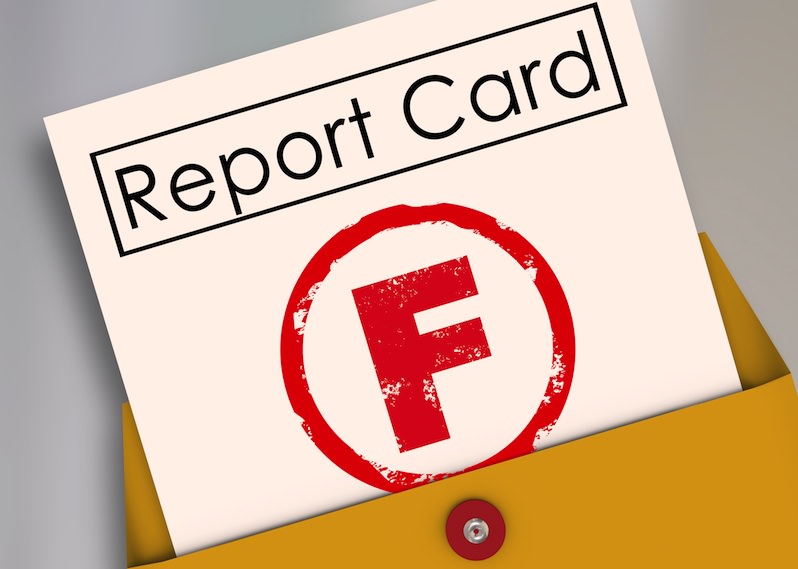 Shutterstock
Shutterstock
By John Ogden
Teachers are a roguish lot. Having spent 31 years in secondary school classrooms and 23 in a Los Angeles Unified School District high school and having examined my motives and those of my colleagues, I say this with confidence. We sacrifice decent financial rewards and enter the profession largely to construct a private fiefdom exempt from the scrutiny of higher-ups. This is the naive assumption with which many of us launch our careers. Lurking somewhere in our memories is the term “academic freedom.” How disillusioning it is to discover this is a myth of the most pernicious kind.
Donald Trump stated—a bit hyperbolically—in the Aug. 6 Republican debate that “the greatest problem in America is political correctness.” He then proceeded to violate massively its unspoken strictures. |
Rafe Esquith, teaching phenom of fifth-graders at Hobart Elementary School, ran afoul of the school’s administration, initially because of a joke overheard by a colleague. One of Esquith’s striking achievements has been founding and directing a theater group called The Hobart Shakespeareans, based on the audacious notion that 10-year-old immigrant kids from Korea and Central America can understand the Bard of Avon’s language perfectly well, a notion borne out in their annual spring productions of a Shakespeare play. While rehearsing early this year, Esquith read a passage from “Huckleberry Finn” depicting the scam artist king romping about naked among patrons and said his students might have to perform naked if fundraising efforts didn’t come to better fruition. Apparently the whistleblowing teacher missed his ironic tone and reported him to the principal: very small beer indeed.
One might have thought that the glowing achievements of this bold teacher—his students opening for the Royal Shakespeare Company, performing “A Midsummer Night’s Dream” at the Ahmanson Theatre, and scoring exceptionally well on standardized tests—would earn Esquith a little slack. Not so. The fact is that extraordinary teachers at L.A. Unified are often perceived by the district and its lieutenants as a threat. They are seen as a major risk for developing hubris, trying to overreach their subordinate place in district hierarchy and distracting the public from the Big Message: “We are addressing the problem of underperforming students and schools big-time.” Downtown district-think always bends toward political correctness, and that means putting out the word to the public that dropout rates are going down, college attendance is going up and kids are being primed for success. Oh, and yes, the Miramonte scandal was an aberration.
True, it was an aberration. And a little perspective by the folks at district headquarters on Beaudry Avenue might allow them to distinguish between the deranged teacher who was charged at Miramonte and their rank and file, most of whose peccadilloes pale by comparison. L.A. Unified’s jihad against “offenders” whose conduct in class or treatment of subject matter bears any remote relation to sex is a politically correct initiative, one fueled by the shocking events at Miramonte and meant convince the public that the pervs are really being rounded up and dealt with. They’re going to the “rubber room,” to “teachers jail,” and will be subjected to a comprehensive investigation. There’s “zero tolerance” (what a perfect politically correct phrase) for that sort of thing in our schools. Well, zero is exactly the kind of word that obliterates nuance (and justice along with it). And heaven help the teacher who treats sex with a modicum of humor.
Esquith is the victim of the furor post-Miramonte and several other recent cases, so much so that acting Superintendent Ramon Cortines and his crew are digging up a narrative from Esquith’s stint working as an adolescent at the Westside Jewish Community Center, an entity entirely unrelated to the L.A. school district. The accusation that he molested a 9-year-old was deemed unworthy of a charge by the Los Angeles Police Department in 2006, but the district is still pursuing it. As Mark Geragos, one of the lawyers defending Esquith, recently said, “This is a dry hole.”
For years in my English classes, I lived in mortal dread of being questioned by a school official about something I said or did in class. Unsurprisingly, I was called on the carpet for using expletives to recalcitrant, poorly behaved males. On one occasion, while covering another teacher’s class, I lifted out of his chair a young man who had told me to go bleep myself, ripping his shirt. The principal quashed the incident like a bug, sympathizing with me and asking me to write up “exactly what the little asshole said.” But what kept me up at night was the prospect of being told the sexual themes in the literature I taught were not proper for 15- to 18-year-old ears. In José Antonio Villareal’s “Pocho,” there was a group masturbation scene; in Maya Angelou’s “I Know Why the Caged Bird Sings,” a stepfather’s rape of a pre-adolescent girl, and in Shakespeare’s Sonnet 18, “Shall I Compare Thee to a Summer’s Day?,” amorous words written for Henry Wriothesley, the third Earl of Southampton. Most biographers agree that Wriothesley was the great love of Shakespeare’s life, and I told this to my English lit students annually.
As director of a student-faculty theater, routinely I would need to make determinations about the use of salty language and the presence of sexual references in plays. No guidelines were provided, and “use your own good judgment” left a rat’s nest of ambiguity. What to do about the “f” word? Is the “n” word OK if used by an African-American student actor? A faculty member? When I and my faculty colleague decided to stage David Mamet’s “Oleanna,” a play about charges of sexual harassment in a college setting, I felt obliged to consult with the principal first. Luckily, she was a theater buff and a sophisticated woman. She thought the play’s message was potentially valuable and instructive for the school community and gave it a big green light. However, when two African-American actresses performed a howlingly funny scene from George C. Wolfe’s “The Colored Museum” titled “Hairpiece,” the millennium-vintage principal took irate exception to the line, “The bitch is bald.” And, in a production of scenes, when a Latina character discussing her nascent sexual appetites with her horrified mother states that she wants to “taste every fruita,” I incurred the displeasure of an assistant principal. The true horror for the administration was the prospect of getting a phone call from a disgruntled parent. Vital, cutting-edge theater program be damned. The politically correct message here: Our school does clean, wholesome plays, old chestnuts. Oddly enough, the worst response by an administrator to anything I ever said in my English class was provoked by my statement that Satan was John Milton’s tragic hero in “Paradise Lost,” a position espoused by distinguished poets and scholars for the past two centuries. The administrator reasoned that many of our students were Christians and it was offensive for them to be told Satan could be seen in a heroic light. And Milton wasn’t a Christian?I fought back on that one.
Arts teachers at L.A. Unified are often reassured by administrators that the district and the school sites care deeply about the arts and want strong programs. That is a politically correct statement of the silliest kind. Even they are not impervious to the fact that we all live in an entertainment industry town, and that there are plenty of substantive entertainment jobs to be filled by the city’s high school graduates. The hollowness of their claim, however, becomes clear when budgets are decided.
Donald Trump stated—a bit hyperbolically—in the Aug. 6 Republican debate that “the greatest problem in America is political correctness.” He then proceeded to violate massively its unspoken strictures. His most egregious assault on this practice was not his appalling quip at Rosie O’Donnell or his contretemps with panelist Megyn Kelly: It was his starkly candid exposure of the patronage system and the fact that he has used it robustly. The folks in Iowa ate that up like fried pork tenderloin at the state fair. And so did many Americans who crave the kind of straight talk that far exceeds John McCain’s. We all may know about the time-honored practice of mutual back-scratching that goes on in politics and business the world over, but we are never, ever supposed to talk about it.
Trump didn’t define political correctness, so I’ll try. It’s telling people what you think they want to hear to the point of blatant obfuscation; it’s hucksterism any telephone sales worker would blush at; it’s finding absurdly respectful euphemisms to replace the outmoded ones fashioned perhaps a decade earlier; it’s reflexively dignifying every extant minority, whether it be author John Irving’s Ellen Jamesians (fiction), or one of the many deep voodoo groups among the denizens of Topanga Canyon. Trump knows that the American people are fed up with it, and just possibly prepared not to take it anymore.
Meanwhile, a teacher with an ingenious imagination and a rare devotion to the young students of our city languishes while the district’s politically correct firebrands re-enact the early days of Salem, Mass.
Your support matters…Independent journalism is under threat and overshadowed by heavily funded mainstream media.
You can help level the playing field. Become a member.
Your tax-deductible contribution keeps us digging beneath the headlines to give you thought-provoking, investigative reporting and analysis that unearths what's really happening- without compromise.
Give today to support our courageous, independent journalists.
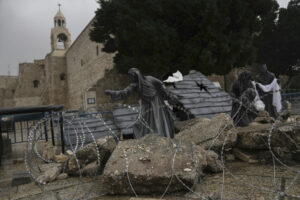

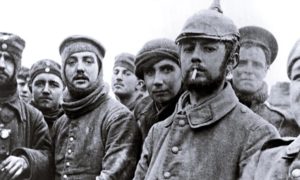
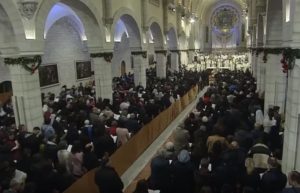
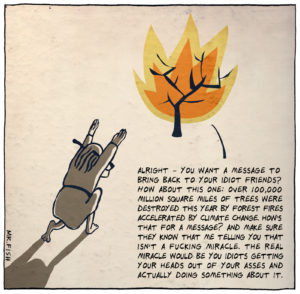
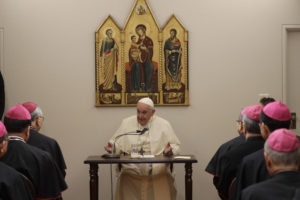
You need to be a supporter to comment.
There are currently no responses to this article.
Be the first to respond.